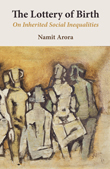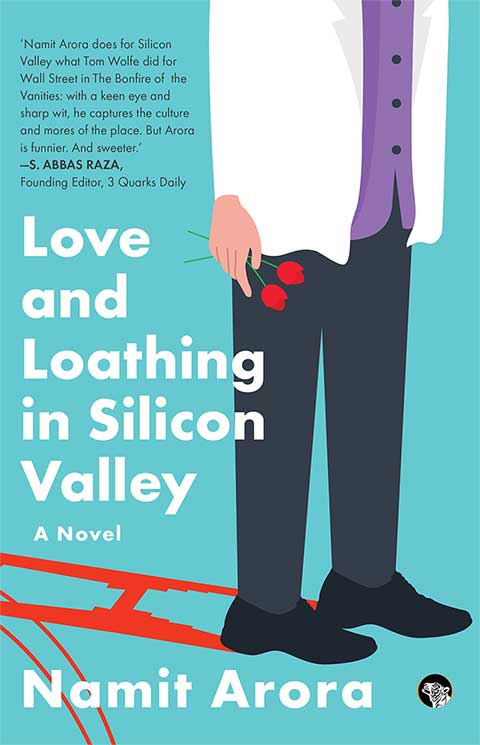| Index of articles from the Blog |
| Animals |
| Anthropology & Archaeology |
| Art & Cinema |
| Biography |
| Books & Authors |
| Culture |
| Economics |
| Environment |
| Fiction & Poetry |
| History |
| Humor |
| Justice |
| Philosophy |
| Photography |
| Politics |
| Religion |
| Science |
| Travel |
Books by
Books by
|
By Usha Alexander | Feb 2017 | Comments
|
How is this possible? Who could support this con man? Who could condone his lies and obscenities? Who would trust him with the safety and security of the world today and for generations to come? Who are these people and why would they do such a thing? The Stories We Tell Ourselves There are many ways we have tried to answer these questions for ourselves. Not all of the answers have been helpful or insightful. Some, in fact, have largely been myths and fantasies. For instance, many have been chanting the refrains, “We’re better than this”, or “This is un-American”, preferring to believe, despite evidence to the contrary, that the essential American ethos is much too civilized and morally centered to produce this outcome; they wish to believe that the kind of xenophobia we’re witnessing today is nothing more than a fluke or aberration. While it’s understandable that we want to tell ourselves this to shield ourselves from the much darker and more complex realities, such stories can get in the way of real understanding and effective resistance. Here’s another fable I keep hearing, a version of that familiar old story that the nearest woman is surely to blame for any calamity: it’s Hillary’s fault that Trump won. Some people have convinced themselves with a religious fervor and without a shred of evidence that Bernie Sanders would have won, had he been the Democratic nominee. While even I would have been more excited about Bernie’s candidacy than Hillary’s, I’ve seen nothing to suggest that more people in those battleground states would’ve voted for Bernie, a non-Christian who flaunts his socialism before an electorate within which a great many have long considered it a dirty word. Trump may even have defeated Bernie more easily than he defeated Clinton by spreading fears of a “red scare,” “big government,” and “reckless spending”. Clinton is arguably not worse than most of the Democratic candidates we’ve seen in recent decades. And whatever shenanigans the DNC’s inner cabal might have pulled to ensure Clinton’s candidacy, the reality is that a certain victory for Sanders is absolutely moot, and bringing him into the discussion provides no logical demonstration that Trump won because of Clinton. It’s true that many Democrats didn’t even turn out to vote in this election, possibly because they were uninspired by Clinton and couldn’t be bothered to show up and vote for her—especially since almost everyone was convinced that she was going to win anyway. But we also know that Republicans engineered voter suppression, especially across black neighborhoods in many states; this played a part in the result as well, and we have no reason to believe that they would have successfully suppressed fewer votes had any other Democrat been the nominee. The fact remains that 46.1 percent of voters thought that a narcissistic, mentally unstable, racist, misogynist, bullying, authoritarian, kleptocratic, compulsive liar was somehow an acceptable choice for President of the United States of America. They reasoned that this woefully inept and bombastic mess called Trump would be a national leader yet preferable to “Lying Hillary”.
Here’s another nice fable, one especially popular on the left: A lot of Trump supporters are well meaning but disenfranchised folks, whom we should recognize as the real victims here. They voted for Trump out of desperation. They have been economically injured and then sneered at by the “liberal elite”, who, by living in cities, somehow “live in a bubble” that precludes any understanding of the economic pain that haunts much of rural America, aka the Real America. If only we, the urban left-liberal elite, had listened to them for all these years and stopped insulting them, they would have naturally recognized that their economic interests are better served by the left, not the right (this despite the fact that they have been voting for the right’s “trickle-down economics” for years; wherever we want the Democratic Party to ideally be, it is demonstrably to the left of the Republican Party, and if it’s relative economic relief one seeks, the choice here is clear). But by now we know that it was not the economically and socially disenfranchised who voted for Trump, certainly not a clear majority of them. The most economically and socially disenfranchised Americans—Blacks, Hispanics, and Native Americans—are not the ones who voted for Trump in large numbers; they voted for Clinton. The median income of the Clinton voter was lower than that of the Trump voter. Those who voted for Trump were more likely to come from homes of close-to-median or higher incomes. And their vote comes not at a time of great economic distress but at a high point in the economic cycle, when there is full employment. Yet we keep repeating to ourselves the myth of the poor people let down by the Democrats, reasonably turning to Trump out of desperation. Again, under what beliefs and presumptions might voting for Trump seem reasonable? And why do we keep repeating such verifiable nonsense? I can only think it’s because blaming ourselves shields us from confronting the harsh and painful reality before us. Confronting Reality The reality before us is that fascism is on the rise in the United States today; it first appeared in the mainstream with the Tea Party movement, which arose in opposition to Obama’s first term. But this turn toward fascism is neither a natural nor inevitable consequence of economic inequality or disenfranchisement (of course these concerns do need to be addressed for several good reasons, but that is a separate issue). Rather, the roots of this movement mostly lie in a different sphere of concerns, primarily in those “blood and soil” impulses that arise from a sense of cultural insecurity and humiliation. The core constituency of this movement is largely whites, who feel alienated from, and resentful of, the progressive cultural change and shifting power relations in our country. They now long for a return to the days when white entitlements to authority were more reliable and less contested.
In fact, we hear more and more stories about how many of his voters selectively ignored some of his flaws or particular policies because they were tuned into something else Trump signaled that was ultimately more important to them: The farmers of California’s Central Valley, whose livelihoods depend upon the labor of illegal migrants, ignored Trump’s voluminous declarations to deport all illegal migrants, and now find themselves at loose ends. Conservative Christians ignored the libertine excesses of Trump’s lifestyle, his infidelities and divorces, and convinced themselves he would uphold their “Christian values”. And how many Trump supporters are now lamenting the repeal of the Affordable Care Act (Obamacare), essential to their families’ wellbeing, which Trump had loudly promised to dismantle from the start? So what promise did Trump hold for his voters that eclipsed all his copious flaws? What did Trump signal to them that was ultimately of greater value than all else? It’s never been a secret; it’s just something some of us have preferred not to see clearly. This is where it gets very difficult, because so many people are discovering that people they know and love actually voted for Trump. This knowledge is challenging their relationships. Naturally, it’s difficult to understand how someone you’ve loved and maybe even respected could vote for a fascist, when you never would have guessed that they had fascist leanings. Are they fascists, then? Are they some kind of neo-Nazis? Are they evil? Because we all know that Nazis are evil, right? Isn’t this what gives us the right to assault them with impunity? Becoming Nazis This last one is the most dangerous and insidious myth of them all. We hear it in Hollywood’s overdone bad-guy depictions of German Nazis. But mostly, we tell this story to ourselves because it soothes our own lazy, simple-minded, self-congratulatory modes of thinking. Because as long as we are clear that Nazis are evil, we know that we are not them. We know that we can never become like them. Nazis have been relegated to the role of the “evil other” so that we never have to look within and question our own biases, our own hatred, our own violence, and the capacity for darkness that lives within each one of us. Or within the ones we love. But the not so subtle truth is that Nazis were people exactly like you and me, like our friends and family, like all the regular folks we see around us every day. Nazis became Nazis by allowing their thinking to get lazy and mean and by allowing their compassion to shrink away. Any one of us can do this trick under the right conditions (though it’s probably true that some of us are more readily prone or better at it than others). There were certainly Nazis who were rabidly anti-Semitic, who were passionately inspired in their malevolence toward Jews and others they wished to dispose of. These were people with grossly attenuated compassion, who easily compartmentalized their identities and their loyalties, who practiced willful blindness as the highest art, and who dreamed up and committed themselves to genocide and enslavement and world domination.
Still other Nazis would have had no strong feelings about any of this either way, may have considered themselves “non-political”, may have felt bad about their friends who were negatively impacted, yet they ultimately found it socially or economically expedient to just go along with the Nazi flow. Some held their noses and joined the party for self-promotion or tenure. All along, they told themselves that they had their own families to feed; that it would all be okay in the end; that the ones who claimed to be suffering weren’t really suffering so much—or surely must have somehow, some way, somewhere done something to deserve it. And, yes, there were some who were simply too immersed in the rhetoric and lacked the knowledge or independence of mind to think their way out of it. Above all, they told themselves that their abstracted fear of the Other was rational and grounded in facts—“facts” that had the power to render entire segments of humanity as nameless and faceless mobs, to reduce them of their humanity and dignity, and to push them beyond compassion and equal moral consideration.
Evil, as a judgment of human worth, is a false notion. Calling others evil is a simplification that allows us to flatten them into their lowest qualities or vilest acts; it allows us to rip away their humanity, so that we can more easily hate them. It is merely a way of objectifying people that permits us to use and hurt them with impunity. Calling a people evil is not fundamentally different than calling them cockroaches. Doing harm, even extreme harm, is not something we can blithely tell ourselves that “evil people” do. Extreme harm is usually done by ordinary people who allow themselves to objectify and dehumanize whole groups of others and who shrink their sphere of compassion to exclude that group. But we can all attest that it does become increasingly difficult to extend our compassion when we are feeling afraid. Or when we are feeling superior. Once these feelings are aroused, all bets are off. That’s why demagoguery works so effectively, though it wields the crudest of tools: whipping up fear with one hand; fanning identitarian pride with the other. As we’re seeing, it’s easy enough to do that even an ignorant buffoon can pull it off, if that buffoon hits upon the right populist formula for his historical moment. And suddenly, we see the foot-soldiers of fascism readily recruited from among ordinary people we’ve known all our lives; they step forth in shocking numbers. Ultimately, those who collaborated with or enabled the Nazis, whether they wholeheartedly believed in the program or not, were able to excise whole groups of people from their spheres of compassion in pursuit of their narrow goals and self-interest. The Nazis were regular people who lost track of their better selves in their fevered dream of injured greatness, which their leaders conjured within them. Their demagogues built up the idea of German superiority; they constructed a bounded ethnic identity, in opposition to Others, dangerous interlopers, especially Jews, and “weak elements”, including homosexuals; and then they spun myths endowing their favored identity with a divine or natural entitlement to rule. The Lure of the Demagogue
There is every indication that the people who voted for Trump, to greater or lesser degrees, are people who have been charmed by his fascist demagoguery. Imbibing what Trump is selling, millions of Americans have shrunk their spheres of compassion and joined with those who may have had constricted compassion to begin with. Together, they are aiding and abetting a fascist movement that has moved into the White House with their support or acquiescence. They may not say to themselves that they voted for a fascist, because they don’t wish to see themselves that way (after all, fascists are evil, so they can’t be fascists). They may not acknowledge that Trump is a racist or a misogynist, because they don’t wish to admit that they condone these attitudes. They will tell themselves along the way that their bully isn’t really going to hurt anyone who doesn’t deserve it. They will blame the victims and minimize their suffering. “It’s not that bad,” some have said about the recent Muslim Ban. “Those people shouldn’t have left the country if they didn’t know they could get back in!” I’ve heard such willfully ignorant heartlessness about valid visa-holders who were hounded, coerced, or sent away. “Those people are dangerous!” the Trump voters warn us, despite the fact that none of the countries included in the ban has produced a terrorist on US soil in decades. It sounds as though, when Trump supporters look beyond our borders, they see a mob of zombies storming the gates instead of everyday people, families, sick babies, nerdy children, athletes, comedians, book lovers, dancers, Trekkies, musicians, nature lovers, and whatever other ordinary characters you might find in any random bunch of humanity. Yet the Trump supporters will cast themselves as the true victims. When one points out implicit or explicit racism, or how their attitudes may derive from structural racism in American life, they take umbrage: “How dare you accuse me of racism? Don’t you know how much it hurts to be called a racist?” they say, as though pointing out their racism is somehow more injurious than living under the pall of racism your entire life.
Because, besides tamping down their compassion for Others, especially Muslims, the one other thing Trump’s voters seem largely to have in common is their relationship to an identitarian mythology that promises them a divine entitlement to power, generally based on some sloppy notion of “race”. This identity is rooted in stories of their past. And they recognize that their historically god-given entitlement to power is now crumbling, making them ripe and open for a fascist demagogue. It’s not because they are poor; it’s not because of Hillary; it’s not because they want a socialist alternative that the Democrats haven’t provided; it’s largely because identitarian power relationships have been shifting for years, and they don’t like it at all. Thankfully, there is a saving, salient difference between the United States today and Germany of the 1930s: thanks to continuous immigration from across the globe, the US is already enormously diverse. It will be much more difficult today to sway as many people with a narrow identitarian mythology as the Nazis were able to do in their time and place. Because of increasing diversity, Trump’s Clown Show may find it more difficult to gain overwhelming traction. As we’re seeing every day, Americans who despise Trump’s rhetoric are already a major force. Even many Islamophobes among blacks, Hispanics, Indians, Jews, homosexuals, people with disabilities, and others, who are not included within Trump’s deeper identitarian mythology, never fell for his story, because it didn’t really include them in its vision of a Great America; if they did fall for him, it’s likely their support for him will break as they figure out they’re excluded. Indeed, some who voted for him have already fallen out from under his spell. But this movement must be stopped. Publicly and privately. In courtrooms, in classrooms, and at dinner tables. If you can open a heart, if you can change a mind, if you can awaken a deeper awareness in someone’s soul, do it. Those who are not amenable to a change of heart—and there are many of them too—must be resisted and their movement defeated. Make no mistake, these are dark and difficult times; there is a collective madness upon us. These are days that will try us, our relationships, our persistence, our best ideas of ourselves as individuals and as a people. If we all come out of this unscathed, it won’t be because the threat wasn’t real, it will be because our resistance overcame the demagogue’s spell. |
Designed in collaboration with Vitalect, Inc. All rights reserved. |
|








